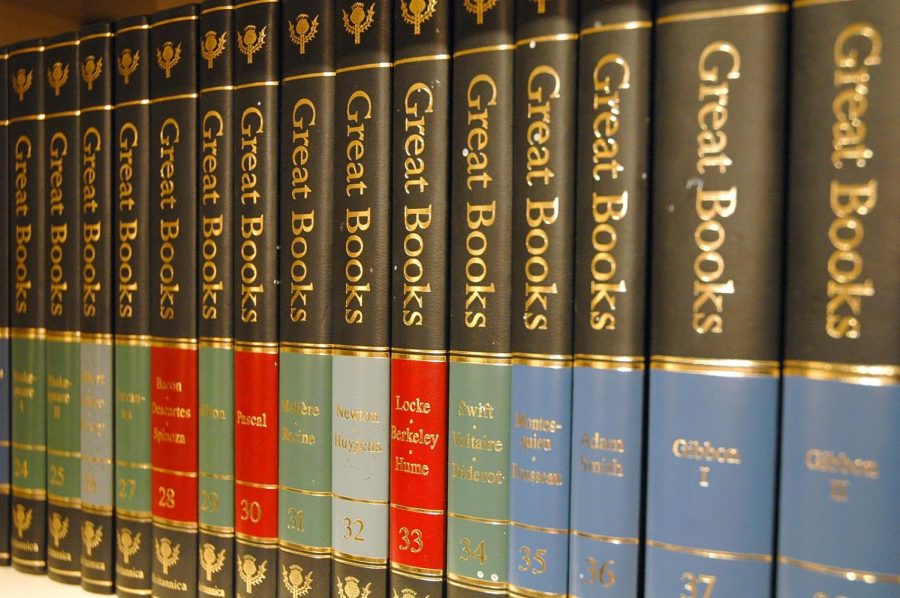Canonical curriculum lacks global perspective
Wikimedia Commons
The New Trier curriculum has been shaped by the same Western books for decades, but we are seeing a needed stride toward diversity
In the most recent Program of Studies book, the English program is described as, “a four-year sequence that encourages students to become actively-engaged, thinking persons in a complex, dynamic world.”
Now, the question is, how complex and dynamic can a curriculum be regarding international topics when it effectively ignores the “world” aspect of it? Not very much.
Although the school curriculum is abundant in the amount of choices it provides, it lacks in classes dedicated to providing a global perspective in an otherwise Western-oriented curriculum.
In fact, certain years of English emphasize extensively on culture, like sophomore year English, a year that is “meant to explore the concept of how individuals find themselves in conflict with their own cultures, and how those conflicts resolve for the individual,” according to the Program of Studies
This culture focuses primarily on Western countries in the 19th and 20th century, a timeframe of history that isn’t necessarily the most effective in exploring cultural conflict. Yes, Hard Times might observe societal norms of English society in the mid-1800’s. Yes, Catcher In The Rye illustrates the characteristics of being a lost, scared, and flawed teenager. But why are these the works that we look at, especially when other books may convey these themes in better ways?
To answer this question, we have to look at something called the Western canon, the body of literature schools have standardized to use to teach English and humanities. The canon consists of classics that show up consistently throughout classes, like “The Odyssey,” “The Great Gatsby,” and “Romeo and Juliet.” When this canon was being decided on, its basis of what makes a classic was influenced heavily on what privileged Western voices found were important and relevant for students to analyze at the time. And at the time, it was appropriate to read such texts.
Nowadays, though, we ignore one of the most important characteristics of the canon: it isn’t—or shouldn’t be—a fixed state. If a classic can no longer reflect the beliefs of a society, it should be able to be replaced by a more contemporary piece of literature that does this task.
Although additions rarely happen to the canon, we are seeing progress in this direction. Added books to the canon like Chinua Achebe’s “Things Fall Apart” emphasized the importance of representing diverse societies within our literature, specifically African culture and imperialism on the continent.
We are also seeing progress locally at New Trier through individual classes that differ from the canon, namely Global Voices. Instead of focusing on American culture like most other English classes, its primary focus is on “the concepts of empire, colonialism, and imperialism as well as the relationship between the colonizer and the colonized,” according to the Program of Studies. This means that the class looks at non-Western literature from all around the world, like Africa, Asia, the Middle East, and Latin America.
The one big issue I see with the Western canon is that it restricts a diversity of topics and issues due to the lens of Western dogma. Considering that these classics are cherished in the Western world, and as we have defined that their purpose is to reflect the beliefs of society, the Western canon wouldn’t be able to fully cherish topics like colonialism, imperialism, and war.
When attempting to cover topics such as postcolonial trauma, war and occupation, and impacts of industrialization, the Western canon doesn’t offer a new perspective because a Western viewpoint doesn’t encompass such experiences. In fact, it often has conflicting viewpoints because they gained from colonialism, imperialism, and industrialization.







































